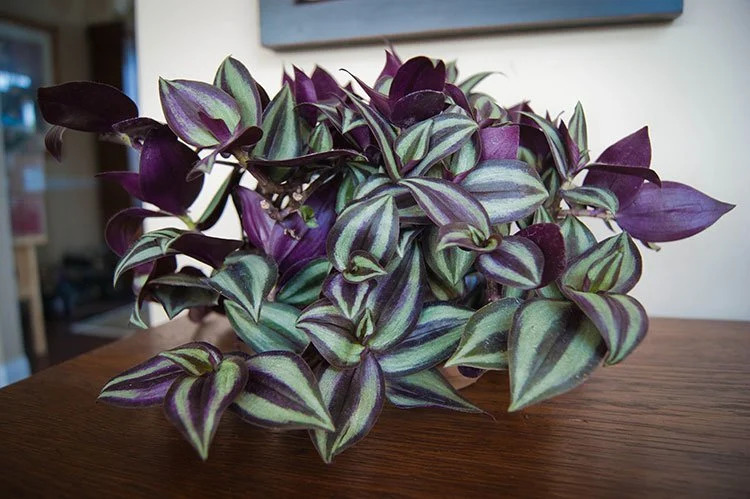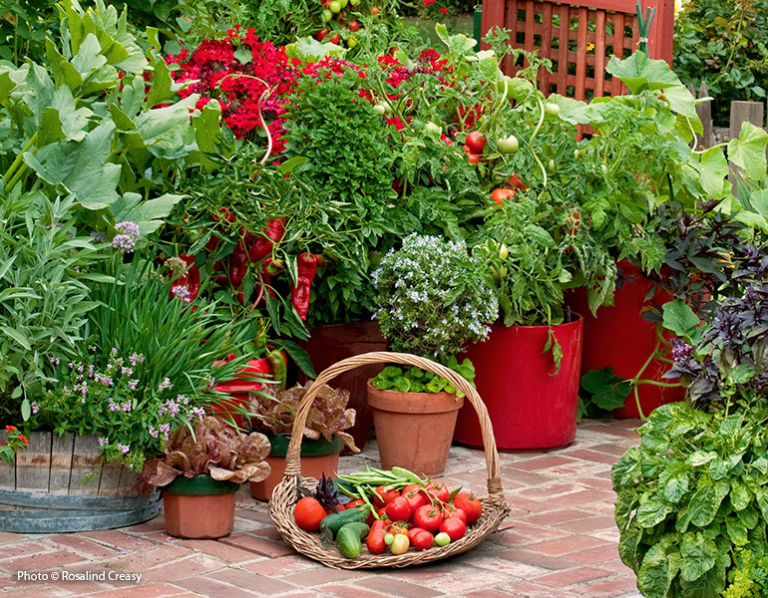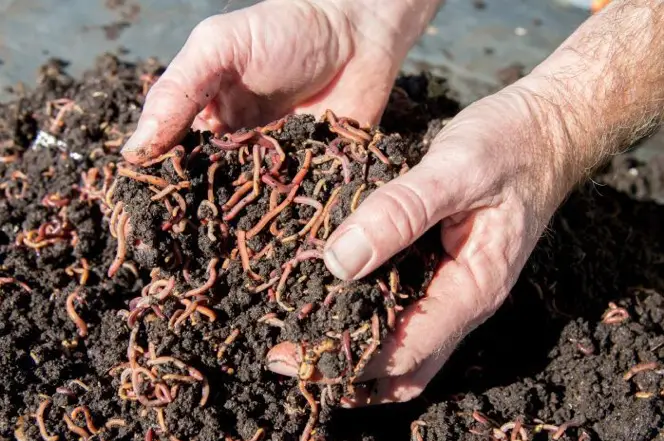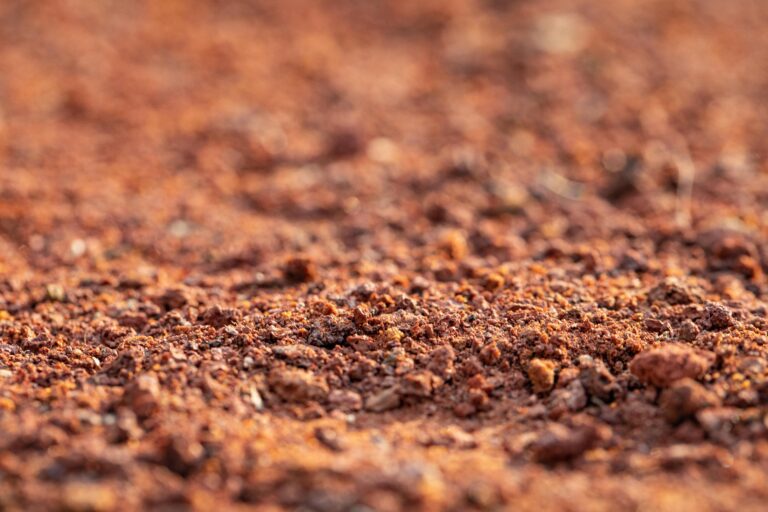Back To Eden Gardening: Soil Done Nature’s Way
Table of Contents
The Benefits of Back To Eden Gardening
Back to Eden gardening is a method that offers numerous benefits for gardening enthusiasts. One of the key advantages of this gardening technique is the significant reduction in water usage. By using a thick layer of organic mulch as a protective cover, the soil retains moisture more effectively, thus minimizing the need for frequent watering. This not only conserves water but also saves gardeners valuable time and effort.
Another benefit of Back to Eden gardening is the improvement in soil health. By implementing natural soil amendments, such as compost and manure, the soil becomes rich in organic matter, essential nutrients, and beneficial microorganisms. This creates a fertile environment for plants to thrive, resulting in healthier and more vigorous growth. Additionally, the organic mulch acts as a natural weed suppressant, reducing the need for chemical herbicides and minimizing weed competition for nutrients and sunlight.
Moreover, Back to Eden gardening promotes sustainability and eco-friendliness. By utilizing organic materials and reducing the reliance on synthetic fertilizers and pesticides, gardeners can cultivate plants in a more environmentally responsible manner. This approach not only benefits the garden ecosystem but also contributes to the overall health of the planet. Additionally, the use of organic produce from Back to Eden gardens promotes a healthier lifestyle by reducing exposure to harmful chemicals found in conventionally grown crops.
Overall, Back to Eden gardening offers a range of benefits including water conservation, improved soil health, and environmental sustainability. By implementing this method in their own gardens, gardening enthusiasts can enjoy flourishing plants, reduced maintenance, and a more eco-conscious approach to cultivating their favorite fruits, vegetables, and flowers.

Understanding the Principles of Back To Eden Gardening
Back To Eden gardening is a method that focuses on creating a natural and sustainable garden ecosystem by following a set of principles. The first principle is the use of wood chips as a mulch layer, which helps to retain moisture in the soil, suppress weed growth, and provide a slow-release source of organic matter. By mimicking the natural forest floor, this method creates a healthy environment for plants to thrive.
Another important principle of Back To Eden gardening is the avoidance of tilling or digging the soil. This helps to preserve the beneficial microorganisms and fungi that live in the soil and contribute to its overall health. Tilling can disrupt the soil structure and lead to nutrient loss, while leaving the soil undisturbed allows for better water retention and nutrient absorption.
By incorporating these principles, Back To Eden gardening aims to create a low-maintenance and sustainable method of growing plants. It promotes the use of natural materials and processes to create a healthy and productive garden environment. Whether you have a large plot of land or a small backyard, understanding and implementing these principles can help you achieve a successful and thriving garden.
Implementing Natural Soil Amendments in Your Garden
Implementing natural soil amendments in your garden is a crucial step towards creating a healthy and thriving ecosystem for your plants. By utilizing organic materials and nutrients found in nature, you can enhance the fertility and structure of your soil, resulting in improved plant growth, increased yields, and a reduced reliance on synthetic fertilizers.
One of the most popular natural soil amendments is compost, which is made from decomposed organic matter such as kitchen scraps, yard waste, and animal manure. Compost adds essential nutrients to the soil, improves its moisture-holding capacity, and encourages beneficial microbial activity. It also helps to break up compacted soil, allowing for better root penetration and nutrient uptake by plants. Incorporating compost into your garden beds or using it as a mulch around plants can significantly improve the overall health of your soil.
Another effective soil amendment is aged manure, which provides a concentrated source of nutrients and organic matter. Manure from herbivorous animals such as cows, horses, or chickens is rich in nitrogen, phosphorus, and potassium, making it an excellent choice for boosting fertility. However, it is important to use aged manure to avoid the risk of burning your plants with high levels of ammonia. Allow the manure to age for at least six months before applying it to your garden beds.
By taking the time to implement natural soil amendments like compost and aged manure, you are investing in the long-term health and productivity of your garden. Not only will your plants benefit from the added nutrients, but you will also be supporting a more sustainable and environmentally friendly approach to gardening. So, start incorporating these organic materials into your garden today and witness the amazing transformation of your soil and plants.

Exploring the Role of Mulch in Back To Eden Gardening
Mulch plays a vital role in Back To Eden gardening, providing numerous benefits that contribute to the overall health and productivity of the garden. One of the primary roles of mulch is moisture retention, as it acts as a protective layer, preventing evaporation from the soil surface. By reducing water loss, mulch helps to maintain a consistently moist environment, which is essential for plant growth and development.
In addition to moisture retention, mulch also helps to regulate soil temperature. By acting as an insulating layer, mulch prevents extreme temperature fluctuations, protecting plant roots from the stress caused by hot or cold conditions. This stable soil temperature promotes optimal root growth and nutrient uptake, leading to healthier and more robust plants. Furthermore, mulch provides a physical barrier that prevents weeds from germinating and establishing themselves in the garden. This reduces competition for nutrients, water, and light, allowing the desired plants to thrive.
Tips for Building and Maintaining Healthy Soil in Your Garden
Building and maintaining healthy soil is essential for successful gardening. Healthy soil provides a suitable environment for plants to thrive, ensuring optimal nutrient uptake and root development. Additionally, healthy soil acts as a natural defense against pests and diseases, reducing the need for chemical interventions. To build and maintain healthy soil in your garden, consider the following tips:
1. Test your soil: Begin by testing your soil’s pH level and nutrient content. This will help you understand its composition and identify any deficiencies or imbalances. Testing kits are readily available and provide valuable insights into the specific needs of your soil.
2. Amend your soil: Once you have identified any deficiencies, you can amend your soil with appropriate organic matter or amendments. Adding compost, aged manure, or leaf mold can enhance the soil’s fertility and structure. These organic materials enrich the soil with valuable nutrients, improve moisture retention abilities, and promote beneficial microbial activity.
3. Practice crop rotation: Rotate your crops each season to prevent the depletion of specific nutrients and the buildup of pests and diseases. Crop rotation can break pest and disease cycles while allowing different plants to utilize different nutrients from the soil. It mitigates the risk of nutrient deficiencies and promotes long-term soil health.
4. Implement cover cropping: Consider planting cover crops during fall or winter when the garden beds would otherwise remain bare. Cover crops, such as legumes or rye grass, protect the soil from erosion, suppress weed growth, and fix nitrogen from the air to enrich the soil naturally.
5. Mulch regularly: Applying a layer of organic mulch, such as straw or wood chips, on the soil surface helps regulate soil temperature, retain moisture, and suppress weed growth. The gradual decomposition of the mulch also adds organic matter to the soil, improving its structure and fertility over time.
By following these tips, you can build and maintain healthy soil in your garden, creating an ideal foundation for vibrant plant growth and bountiful harvests. Remember, healthy soil is the cornerstone of successful gardening, providing your plants with the essential nutrients and support they need to flourish naturally.

Choosing the Right Plants for Back To Eden Gardening
When choosing the right plants for Back To Eden gardening, it is important to consider their adaptability to natural, no-till methods and their overall compatibility with the system. Opting for plants that thrive in low-maintenance environments and require minimal intervention will ensure a successful and sustainable garden.
Firstly, it is advisable to select plants that have deep root systems. These plants are beneficial for the Back To Eden garden as they help improve soil structure, promote water infiltration, and increase nutrient absorption. Additionally, deep-rooted plants are more resistant to drought and can access nutrients that are deeper in the soil.
Furthermore, plants that are native or well-adapted to the local climate are excellent choices for Back To Eden gardening. These plants have evolved to withstand the specific conditions of the region, requiring less input in terms of water, fertilizers, and pesticides. They are more likely to be disease and pest resistant, ensuring a healthier and more sustainable garden.
While diversity is important, it is also vital to consider the compatibility of plant species within the garden. Some plants may release substances that inhibit the growth of others, while certain combinations can promote beneficial interactions. Researching companion planting techniques can help maximize the potential of the Back To Eden garden and create a harmonious ecosystem.
To optimize the selection process, consulting local cooperative extensions, nurseries, or horticultural experts can provide valuable insights into the best plants for your specific region and Back To Eden gardening practices.
Managing Pests and Weeds in a Natural Garden Setting
Pests and weeds can pose significant challenges to any gardener, but in a natural garden setting, it is essential to manage these issues without resorting to harmful chemicals or synthetic pesticides. Thankfully, there are several effective strategies that can help you maintain a healthy and thriving garden while minimizing the impact of pests and weeds.
One of the key principles of natural gardening is to promote biodiversity, which can play a crucial role in pest management. By planting a diverse range of crops, you can attract beneficial insects and predators that naturally control pests. For example, ladybugs and lacewings are known to feed on aphids, while certain types of wasps prey on harmful caterpillars. Incorporating companion planting techniques, such as intercropping, can also create a natural balance that deters pests. For instance, planting marigolds near vegetables can discourage nematodes, a common garden pest.
While prevention is important, it may not entirely eliminate pests and weeds. In such cases, manual removal can be an effective method. Hand-picking insects or physically pulling out weeds can help to keep their populations under control. Additionally, regularly inspecting your plants and promptly addressing any signs of damage or infestation can prevent further spread. Introducing organic pest control methods, such as using insecticidal soap or neem oil, can also prove beneficial in tackling stubborn pests.

Harvesting and Preserving the Fruits of Your Back To Eden Garden
As you stroll through your bountiful Back To Eden garden, it’s an opportune time to gather the fruits of your labor. Harvesting your homegrown produce is not only rewarding but also a crucial step in preserving their freshness and flavor. In this section, we will explore the best practices for harvesting and preserving the fruits of your Back To Eden garden.
When it comes to harvesting, timing is key. Each fruit and vegetable has its own optimal stage when it is ready to be plucked from the plant. Pay attention to the recommended harvesting times for the different varieties you have planted. Most fruits and vegetables are at their peak flavor when they are fully ripe and have reached their maximum size. Use your senses to assess their readiness – the vibrant colors, fragrant aromas, and gentle give in the flesh are all indications of a fruit or vegetable ready to be picked. By harvesting at the right time, you can ensure the best taste and nutritional value.
After harvesting, it is essential to store your freshly picked produce properly. Without the use of artificial preservatives, Back To Eden gardening embraces natural preservation methods. One popular approach is root cellaring, where roots and tubers are stored in a cool and dark environment to extend their shelf life. Another effective method is canning, which involves sealing fruits or vegetables in jars with acids, such as vinegar or lemon juice, to prevent spoilage. Freezing is also a reliable option, as it halts the degradation process and preserves the fruits and vegetables’ quality. Whichever preservation method you choose, proper storage conditions, such as temperature and humidity control, are vital to maintain the freshness and nutritional value of your harvest.
By following these techniques for harvesting and preserving, you can savor the fruits and vegetables of your Back To Eden garden long after the growing season has ended. Implementing these practices not only ensures the best taste and quality but also reduces food waste and allows you to enjoy the fruits of your labor throughout the year. So, go ahead and embark on the journey of harvesting and preserving the abundance from your garden while embracing the principles of Back To Eden gardening.
Success Stories and Testimonials from Back To Eden Gardeners
Success Stories and Testimonials from Back To Eden Gardeners
Back To Eden gardening has captured the hearts of gardeners worldwide, and the success stories and testimonials pouring in are a testament to its effectiveness. Gardeners who have embraced this natural gardening method have experienced remarkable results, with bountiful harvests and healthier plants.
One enthusiastic gardener, Jane Peterson, shared her experience with Back To Eden gardening: “I’ve been using this method for three years now, and I’m amazed by the transformation in my garden. The soil is rich and crumbly, full of life, and my plants are thriving like never before. I no longer need chemical fertilizers or pesticides, and my vegetables taste superb. It’s truly a game-changer!”
Another gardener, Mark Johnson, emphasized the ease and simplicity of Back To Eden gardening: “I was hesitant to try it at first, but I’m glad I did. The thick layer of organic mulch not only suppresses weeds but also retains moisture, reducing the need for watering. It’s a time and labor-saving technique that allows me to enjoy my garden without stressing about maintenance tasks. And the best part? My garden keeps getting better and better each year.”
These testimonials highlight the positive impact Back To Eden gardening has had on individuals’ gardening experiences. The combination of natural soil amendments and the liberal use of mulch provides a nurturing environment for plants, fostering their growth and vitality. As these success stories demonstrate, Back To Eden gardening is a sustainable and rewarding technique that can transform any garden into a thriving ecosystem.

The Future of Back To Eden Gardening and Sustainable Agriculture
Gardening enthusiasts around the world are increasingly turning to Back To Eden gardening as a sustainable and eco-friendly approach to cultivation. As we look towards the future, it is evident that this method holds great promise in not only transforming our individual gardens but also in shaping the future of sustainable agriculture as a whole.
One of the key advantages of Back To Eden gardening is its ability to conserve water. With climate change and water scarcity becoming pressing concerns, this method offers a solution by significantly reducing water usage. The thick layer of organic mulch used in Back To Eden gardening acts as a natural water-retaining barrier, minimizing evaporation and allowing plants to access moisture even during dry spells. In fact, studies have shown that this method can reduce water consumption by up to 75% compared to traditional gardening techniques. By embracing Back To Eden gardening, we can play an active role in conserving one of our planet’s most precious resources.
Furthermore, this innovative approach to gardening offers immense potential for carbon sequestration. The use of deep organic mulch creates an ideal environment for soil microbes, which in turn enhance the soil’s ability to capture and store carbon dioxide from the atmosphere. As we continue to combat climate change, Back To Eden gardening can serve as an effective tool in reducing greenhouse gas emissions and mitigating the impact of global warming. By sequestering carbon in our gardens, we contribute to a more sustainable and balanced ecosystem.
In the ever-evolving world of agriculture, Back To Eden gardening stands as a beacon of hope and progress. Its water-saving benefits and carbon sequestration potential make it a powerful ally in our fight against environmental degradation. With ongoing research and experimentation, we can expect to see further advancements in this field, leading to more refined techniques and improved outcomes. As gardeners, it is our duty to embrace this sustainable approach and pave the way for a greener and more resilient future. The possibilities are abundant, and the future of Back To Eden gardening holds immense promise for both our gardens and the planet we call home.
What are some of the benefits of Back To Eden gardening?
Back To Eden gardening provides numerous benefits, such as improved soil health, increased water retention, reduced weed growth, and enhanced plant growth and productivity.
What are the principles of Back To Eden gardening?
The principles of Back To Eden gardening include using natural mulch to cover the soil, avoiding tilling and digging, implementing natural soil amendments, and promoting a diverse ecosystem within the garden.
How can I implement natural soil amendments in my garden?
Natural soil amendments, such as compost, manure, and organic matter, can be added to the soil to improve its fertility and structure. These amendments provide essential nutrients and promote beneficial microbial activity.
What role does mulch play in Back To Eden gardening?
Mulch serves as a protective layer over the soil, regulating temperature, conserving moisture, preventing weed growth, and promoting a healthy ecosystem by providing habitat for beneficial organisms.
What are some tips for building and maintaining healthy soil in my garden?
To build and maintain healthy soil, it is essential to avoid over-tilling, add organic matter regularly, practice crop rotation, minimize chemical inputs, and encourage beneficial soil organisms.
How do I choose the right plants for Back To Eden gardening?
When selecting plants for Back To Eden gardening, choose varieties that are well-suited to your climate and soil conditions. Consider native plants, perennials, and those that have a symbiotic relationship with beneficial insects.
How can I manage pests and weeds in a natural garden setting?
Natural pest and weed management in a Back To Eden garden can involve techniques such as companion planting, attracting beneficial insects, using physical barriers, hand-picking pests, and practicing regular weeding.
How can I harvest and preserve the fruits of my Back To Eden garden?
Harvest fruits from your Back To Eden garden when they are ripe, and follow appropriate preservation methods such as canning, freezing, drying, or making preserves to enjoy them throughout the year.
Are there any success stories or testimonials from Back To Eden gardeners?
Yes, many individuals have successfully implemented Back To Eden gardening principles and have seen significant improvements in their garden’s health, productivity, and sustainability. These success stories and testimonials can inspire and guide others in their gardening journey.
What does the future hold for Back To Eden gardening and sustainable agriculture?
The future of Back To Eden gardening and sustainable agriculture is promising as more people recognize the importance of regenerative and ecological practices. It offers a solution for producing food in a way that is environmentally friendly, resource-efficient, and promotes long-term soil health and biodiversity.

Beck Wakeford is a dedicated writer at SouthElMonteHydroponics, with a fervent enthusiasm for agriculture and technological innovation. Armed with a degree in Agricultural Engineering from a leading university, Beck specializes in hydroponic systems design, automation, and optimization. Their passion for merging traditional farming with cutting-edge technology drives them to explore novel solutions for sustainable food production. Beck’s expertise and keen interest in the intersection of engineering and agriculture make them a valuable asset in the quest for efficient and eco-friendly farming practices. Through their writing, Beck aims to inspire others to embrace the potential of hydroponics in shaping a more sustainable future.






